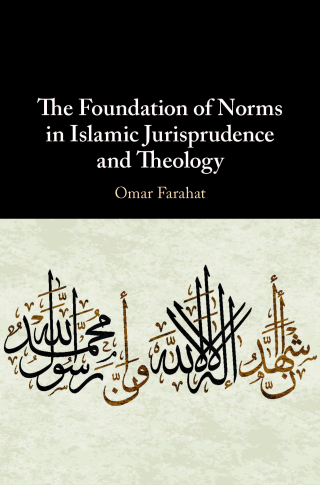Associate Professor
Associate member at the Institute of Islamic Studies
William Dawson Scholar
Old Chancellor Day Hall
3644 Peel Street
Room 27
Montreal, Quebec
Canada H3A 1W9
514-398-1637 [Office]
omar.farahat [at] mcgill.ca (Email)

Read: Selected writings on Academia.edu
Focus Law | Droit Fall 2017: ![]() Crossing Borders - Interview with Omar Farahat
Crossing Borders - Interview with Omar Farahat
Biography
Omar Farahat’s areas of interest include Islamic legal theory, comparative law, theoretical and theological ethics, and religious forms of regulation relative to modern nation-state systems. His current research focuses on Islamic legal and moral theories, centered on the analysis of key concepts in Islamic legal theory in conversation with similar debates in contemporary jurisprudence. Particularly, he is interested in the ideas of right, personhood, and social roles in classical legal theory, and the boundaries between legal rules and virtues in Islamic thought.
His first book, The Foundation of Norms in Islamic Jurisprudence and Theology (Cambridge University Press, 2019) explores the role of divine commands as a normative source in Islamic theology and legal theory. His work on Islamic legal theory and ethics has appeared in the Journal of Law and Religion and the Journal of Religious Ethics, Oriens, the Journal of Arabic and Islamic Studies, among others. His research has received funding from the Fonds de recherche du Québec – Société et culture (FRQSC).
Before joining McGill in 2017, Omar Farahat completed his Ph.D. at Columbia University in 2016, after which he worked as a Research Fellow at Yale Law School in 2016-2017. He was also a research fellow at Harvard Law School in the spring of 2020. Prior to that, he obtained a dual law degree from Université Paris 1 Panthéon-Sorbonne and Cairo University in 2004, an LL.M. from Harvard Law School in 2007, and an interdisciplinary M.A. in the humanities from New York University in 2010. He has practiced law in Cairo, New York, and Paris. In 2025 he was named a William Dawson Scholar for a five-year term
Education
- Ph.D., Columbia University, 2016
- M.A., New York University, 2010
- LL.M., Harvard Law School, 2007
- Maîtrise, Université Paris 1 Panthéon-Sorbonne, 2004
- Licence, Cairo University, 2004
Employment
- Associate prof, Faculty of Law, McGill University, 2023- present
- Assistant Professor, Faculty of Law, McGill University, 2017- 2023
- Research Fellow, Yale Law School, 2016-2017
Areas of Interest
Law and religion, theistic law and ethics, Islamic law, comparative law, legal theory, ethics.
Professor Farahat is always interested in supervising graduate work in these areas.

